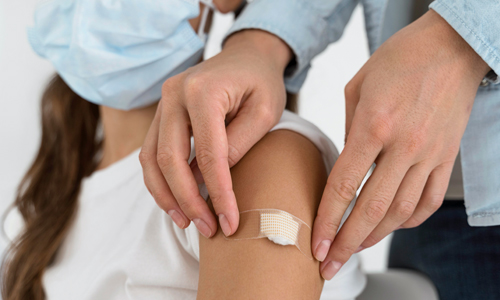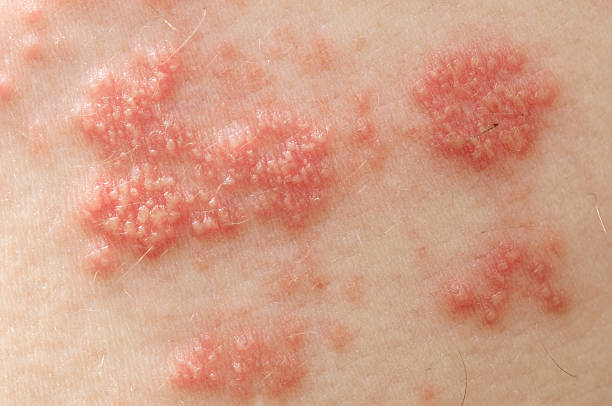Generally speaking, it is true that people aged 50 or above have a higher risk of developing shingles. But relatively younger generations also have shingles cases. As long as a person is under a lot of stress, does not have enough sleep and weakened immunity, he/she may develop shingles.
Everyone has different symptoms and reactions to herpes zoster infection. Some people may not have obvious symptoms but only mild rash or pain, and they don’t know that they have actually contracted chickenpox. Once you have chickenpox, you will definitely have a chance to develop shingles. Therefore, in order to ensure your health, it is still recommended to get vaccinated against shingles.
Shingles is not fatal but may result in serious complications. A relatively common situation is that the wound on the patient’s skin is infected and inflamed. Some people develop postherpetic neuralgia after suffering from shingles, and that pain will last for several months, years or even longer. If herpes zoster unfortunately spread to your eyes, it may affect your vision and even cause blindness. If the herpes zoster unfortunately spread to your ears, it may affect your hearing and even cause deafness. As long as it is a body part with a nerve cord, the virus may spread there.
Human nerve chords are usually found on the left and right sides of the body. Therefore, shingles is usually found on either side, and the chance of coinfection on both sides is extremely low. If shingles develops on both sides of the body at the same time, this means that the patient’s resistance is abnormally low, and is more prone to serious complications. The risk of death will indeed be higher.
In the early stages, patients may experience headaches, malaise, and even fever. Days after the onset, the patient may experience a stinging pain even without touching the onset location. In addition, some parts of the skin may feel numb or itchy. Then a red rash will appear after 1 to 3 days, and the severity varies from person to person. Some patients will develop blisters afterwards. The blisters are easy to break, and then scab. The skin discomfort caused by herpes zoster usually heals within 2-3 weeks, but the subsequent neuralgia may last for a week or even several months, depending on each person’s situation.
Although both are caused by the same virus, but chickenpox is not comparable to shingles. Normally, chickenpox causes hundreds of itchy blisters on the patient’s body, and usually recovers within 5-7 days. The symptoms of shingles may last for a month, and may cause complications and sequelae.
Usually, if you have just recovered from shingles, there should be antibody protection in your body, and there is no need to get vaccinated in the short term. However, the antibody level will gradually decrease over time. According to international guidelines, it is recommended to be vaccinated against herpes zoster one year after developing shingles. Note that people who have shingles before may relapse, so they should remain mindful of this.
The shingles vaccine only has a preventive effect and does not have any therapeutic effect. However, vaccination against herpes zoster can allow the vaccinated person to have relatively mild symptoms even after the onset of the disease, and reduce the risk of sequelae. When a person starts having shingles, some would describe it as an acute pain, which is greater than after surgery or even childbirth. As for postherpetic neuralgia, it is described as feeling like being stinged, burnt, or even received an electric shock. Pigmentation may appear on the affected part of the body, causing the skin to appear bruised. It will take at least a few months for it to disappear gradually, but in some serious cases, it will last forever and form scars.
Doctors don’t tell patients to avoid certain food. However, patients usually develop shingles because of weak resistance. They should indeed pay attention to a balanced diet,make sure to drink adequate water and to have proper sleep and rest. They should try to avoid eating raw and cold food and overnight food when they are developing shingles.
It is not accurate to describe shingles as contagious. Shingles is caused by the hidden virus in the body, and it will not infect others through social contact. However, if someone has not had chickenpox, and those people accidentally touch the herpes zoster virus in the shingles patient’s wound or blister, they may be infected with chickenpox. But it is not shingles. For people who have had chickenpox, as mentioned above, shingles and chickenpox originate from the same virus, and they have antibodies themselves, so they will not be infected.









